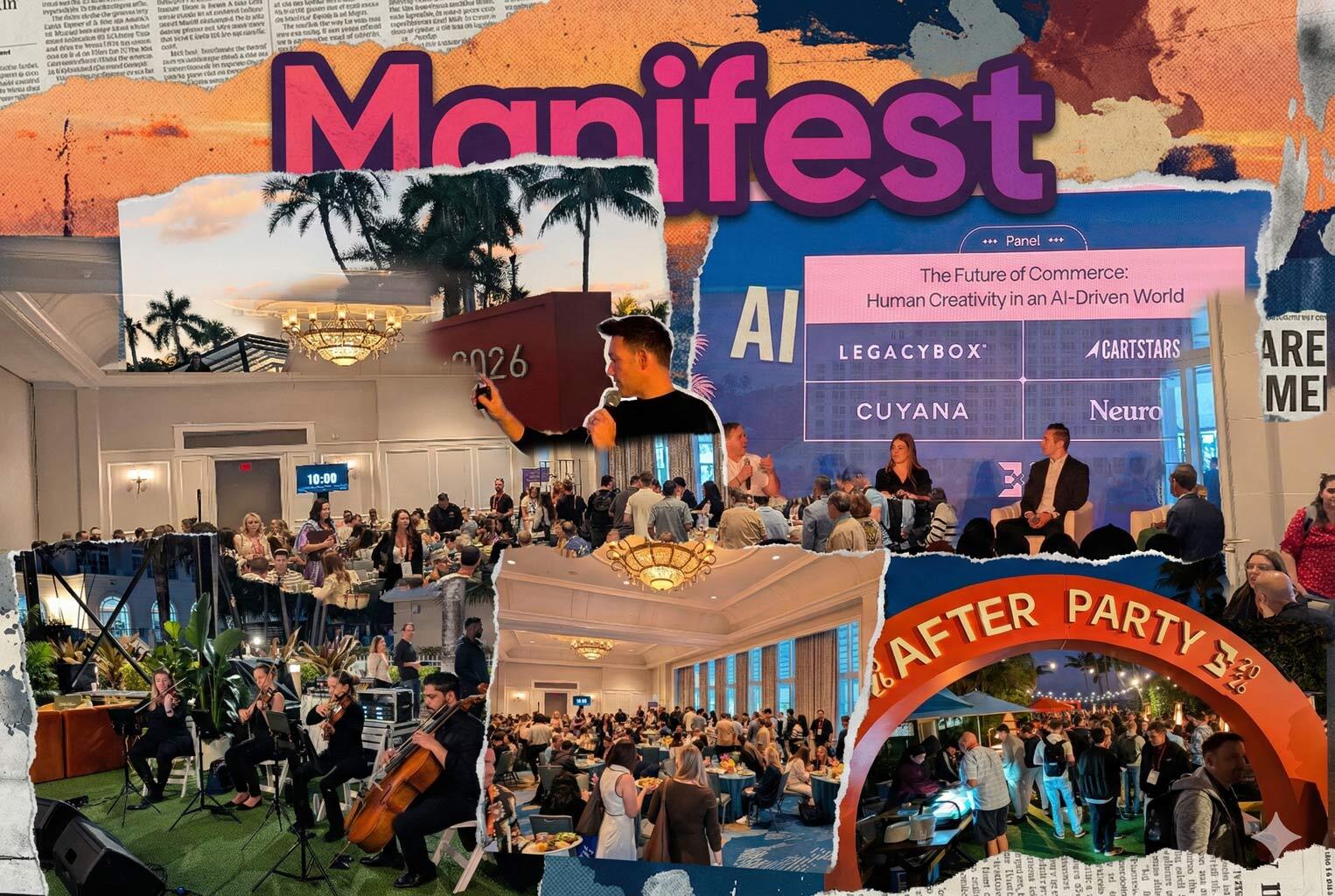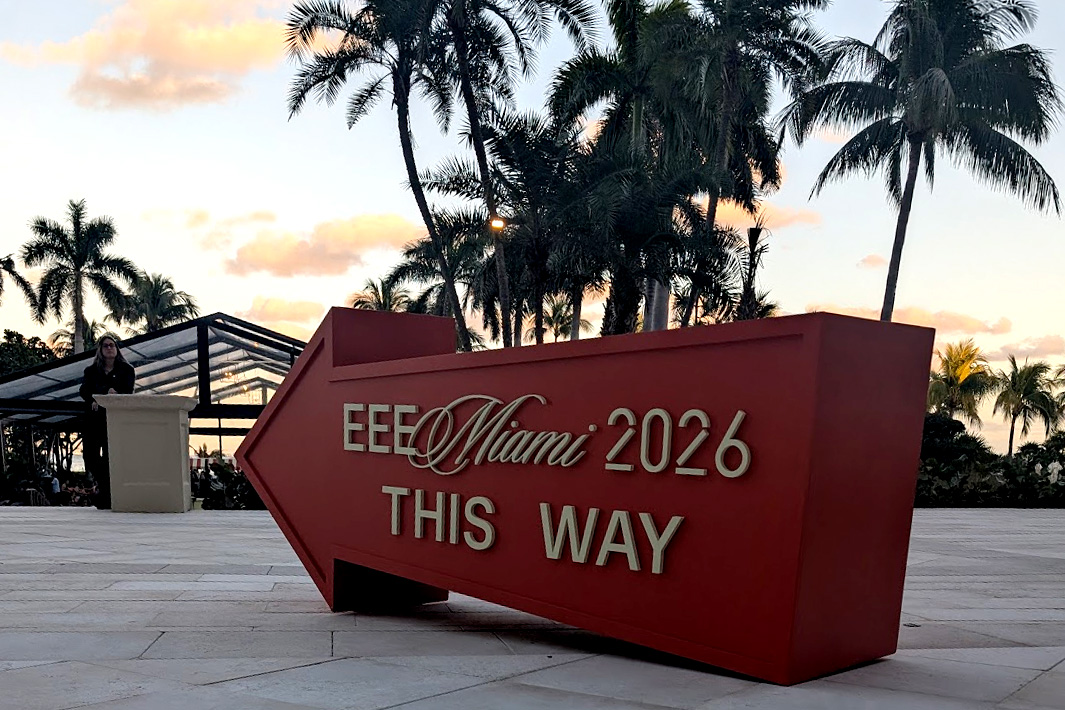
Greeting Card Holidays are GPT’s Capitalist Playground

Smallville is a quaint and quiet town. People go about their lives, peacefully, if not mundanely, day in and day out.
As far as towns go, Smallville is like any other — they have shops to keep, they hold mayoral elections, and celebrate holidays like Valentine’s day.
Except, Smallville isn’t any old town: it’s an AI study started by Google and Stanford researchers as an experiment for autonomous AI carrying out a simulation of daily life.
The 25 “agents”, as they’re called, began to interact with each other in unpredictable, and very human ways. Some attempted to visit a shop after closing time, another agent attempted to throw a Valentine's Day party by sending out invites and setting a time and place for the party.
From the published research paper:
Generative agents coordinate with each other. Isabella Rodriguez, at Hobbs Cafe, is initialized with an intent to plan a Valentine’s Day party… from this seed, the agent proceeds to invites friends and customers when she sees them at Hobbs Cafe or elsewhere. Isabella then spends the afternoon of the 13th decorating the cafe for the occasion. Maria, a frequent customer and close friend of Isabella’s, arrives at the cafe.
Isabella asks for Maria’s help in decorating for the party, and Maria agrees. Maria’s character description mentions that she has a crush on Klaus. That night, Maria invites Klaus, her secret crush, to join her at the party, and he gladly accepts.
Ah, futurists, the two constants in life: buying things and hooking up. The world revolves around these two desires, doesn’t it?
The novelty of this example is that the intent — to celebrate a commercial holiday — leads to coordination around a series of commerce-centric outcomes. Buying decorations and invitations, and arranging a space to hold the event (a cafe).
While others fearmonger around the ability of a simulation to carry out complex tasks and form their own motivations through coordination, we have a markedly different view. The ability for an AI agent to understand relationships and motivations mean that every commercialized holiday becomes trivial.
Mother’s Day, Father’s Day… International Churro Awareness Month; the intent is that you hold these people in your memory, you plan and expend effort to give something to them as a token of your relationship; that they were worth the effort.
When an AI has trivialized these commercialized holidays, to the extent of the planning, purchasing, coordination, and execution of these events; the holidays cease to have meaning. What, then, will hold the greatest value? Thoughtful, intentional, personal execution.
Proving that you were the gift-giver, and not the AI, will become relationship capital. Commercialism gave us holidays in goad us into buying more stuff. Technology gave us AI to then trivialize the effort that goes into those holidays.
Capitalism giveth… and capitalism taketh away.
Valentine’s Day 2035 is going to be wild.
— Phillip
P.S. If you don’t want to wait to have a relationship from the future, you can form a new one right now… with a deceased celebrity. Have JFK Jr. pick out your next cocktail dress with a product that we discuss on the most recent episode of the podcast. Future Commerce Episode 300 is now available wherever podcasts are found.

.jpg)
Bowser Returns to His Castle. Bowser, the Switch modder has been released from prison and allowed to return home to Canada, but still owes Nintendo $14.5 million. No word yet on his nuptials to Peach, or whether she’s, indeed, in another castle.
Our Take: Nominitive Determinism is the hypothesis that people gravitate towards work that fit their names. Think Usain Bolt as a prolific runner, for instance. The modder Bowser has been characterized by the media as a "hacker", but mainly worked in sales and promotion for Team Xecuter, an underground jailbreaking group that sold mods and services to jailbreak devices, opening up software for consumers to install unofficial programs and apps onto their consoles.
The sentence is notable, as it comes at a time where hardware manufacturers like Nintendo are fighting against piracy and attempting to protect their intellectual property. It remains to be seen whether Bowser will continue to work in the modding community or pursue a different path, but his story highlights the ongoing debate around the ethics of jailbreaking and piracy in the gaming industry.
Commerce is critically impacted via legislation. Bowser's case also highlights the fact that intellectual property laws are a critical aspect of the gaming industry. Piracy and hacking can have significant financial and legal consequences for companies like Nintendo, and there are ongoing debates about how to balance consumer rights and corporate interests.
The ruling comes as other judgments are being written into case law. The “Right to Repair” movement has gained momentum in recent years, with advocates arguing that consumers should have the ability to repair and modify their own devices without fear of legal repercussions. This has led to legal battles between manufacturers and repair advocates, with some states passing legislation to protect the rights of a consumer to be able to service their own machines; decisions which may impact the form factor and costs of devices going forward.

Luxury in Hot Water. The luxury industry in Europe is under scrutiny after antitrust regulators inspected Gucci’s headquarters in Milan. At the center of the investigation are possible violations of the European Union's Article 101, which prohibits agreements that restrict, prevent or distort competition within the EU and which have an effect on trade between EU member states. Kering, the French-listed owner of Gucci, confirmed the inspection and said it was cooperating fully with the investigation. Companies found guilty of breaking EU rules face fines of up to 10% of their global turnover.The EU Commission said on Tuesday that the latest action was not related to other raids involving the fashion industry in the past two years.


Dunk On This. Big Mac Sauce is going dunkable. McDonald’s is adding packets of the sauce to its saucy family, available only through their mobile app on April 27. Loyalty, quality, scarcity, and availability. Are we talking about aspirational luxury, or sauce? It’s hard to tell anymore.
The Allure of Luxury. Erewhon, the luxury grocery store and social hotspot keeps people coming back for reasons that even they can’t make sense of. Some people even work multiple jobs to keep this one place within their routines.

The Three B’s? Samsung is considering switching to Bing as its search engine, causing Google to “panic”. CEO Sundar Pichai said he didn’t want to be caught up in the AI race; but finds himself facing existential threats from all sides of consumer search.
Our Take: Once upon a time, Samsung’s assistant was named Bixby. Will they trade it in for Bing? Or Bard? And why are all of these objectively terrible names?











.svg)
